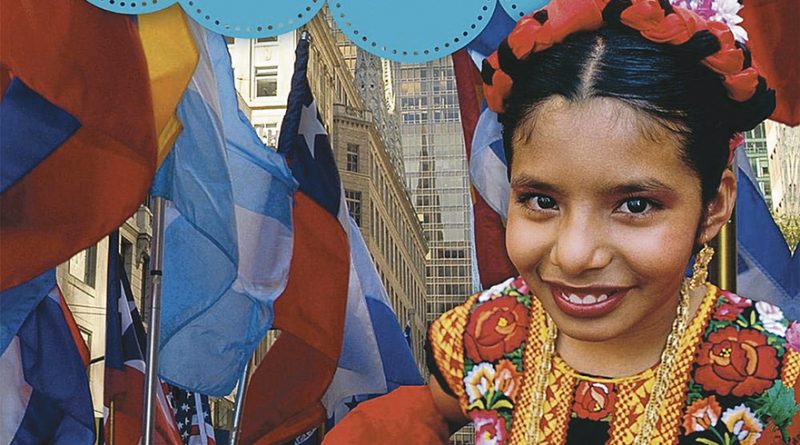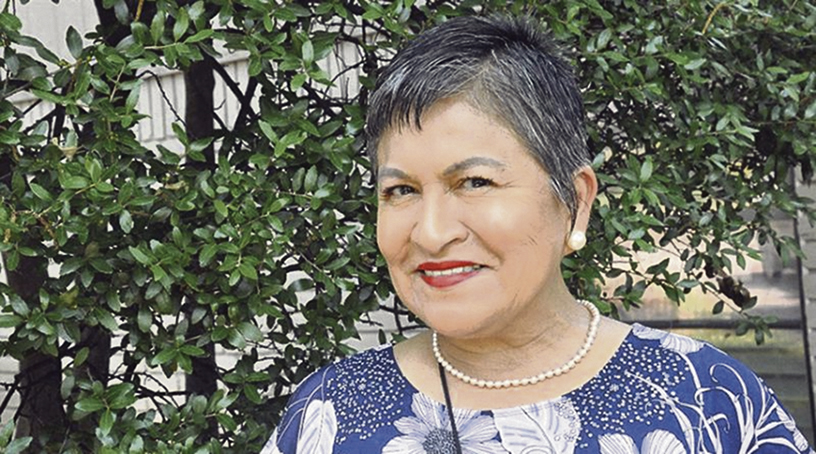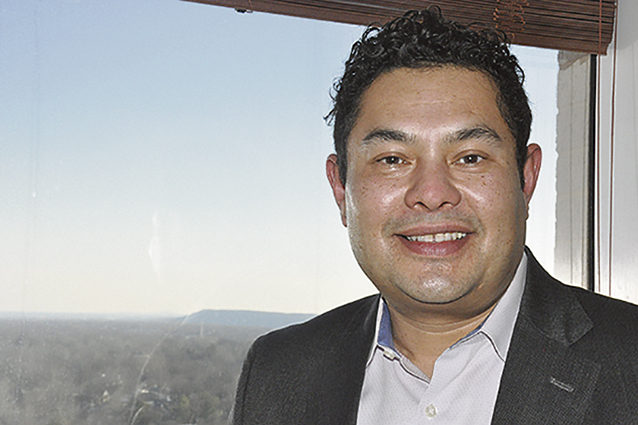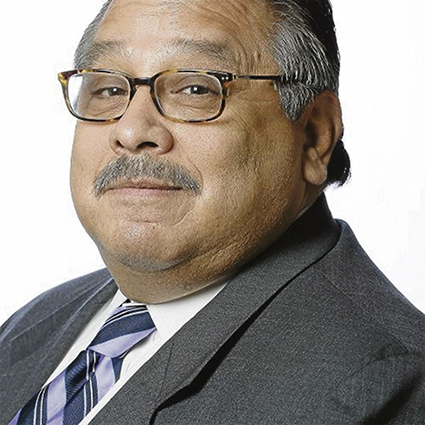Historias locales de la Herencia Hispana / Local stories of Hispanic Heritage
Por William R. Wynn | TULSA, OK
El Mes de la Herencia Hispana se extiende desde el 15 de septiembre hasta el 15 de octubre de cada año, y al llegar a la mitad de las celebraciones La Semana quiere presentar a nuestros lectores a tres hispanos locales que, cada uno a su manera, hacen una diferencia en las vidas de sus hermanos y hermanas latinos en Tulsa.
Empezando por el sur, hablamos con la peruana Tina Peña. Cientos de estudiantes, tal vez más, tuvieron el beneficio de recibir clases de español de Peña en el Tulsa Community College (TCC) o a través de su trabajo con estudiantes internacionales de todos los orígenes. Otros la conocen a través de su premiado programa de televisión en español, Temas en Tulsa, donde Peña entrevista a invitados sobre una amplia gama de temas. Peña también dirige la fundación Mita, la organización benéfica que fundó en nombre de su madre. La fundación Mita recauda dinero para los niños pobres de la tierra natal de Peña, que nunca ha abandonado realmente, incluso después de estar en Estados Unidos durante más de 40 años.
“Nací en Lima, Perú, y me trasladé a Estados Unidos en 1980”, recuerda Peña. “Para mí, la ‘herencia hispana’ significa aportar lo mejor de mi cultura mientras me asimilo a la cultura más grande que es la estadounidense. No significa perder la cultura propia, sino que nos llama a convivir en un nuevo espacio y tiempo con nuestras diferentes idiosincrasias”.
Al avanzar hacia el norte, La Semana se puso en contacto con el abogado Marvin Lizama, que llegó aquí desde Centroamérica siendo aún un niño. Además de su exitoso ejercicio de abogacdo, Lizama fue durante varios años presidente de la organización de defensa de los inmigrantes “Coalición por el Sueño Americano”.
“Nací en Honduras y pasé los primeros 12 años de mi vida allí. Luego me trasladé al Bronx, en Nueva York, donde viví la mayor parte de mi vida hasta que llegué a Tulsa”, explicó Lizama. “Como latino, creo que es importante celebrar el mes de la herencia hispana para mantener una fuerte conexión con nuestras raíces latinoamericanas. Tengo la suerte de haber nacido en Honduras y de haber asistido a la escuela primaria hasta el sexto grado allí. Me enseñaron la historia de nuestra cultura desde un punto de vista latino, con especial énfasis en nuestra herencia maya. Aquí en los Estados Unidos, es aún más importante que nuestros niños nacidos aquí aprendan de sus familiares sobre nuestra herencia, nuestras costumbres, nuestro folclore y nuestra historia precolombina… Depende de nosotros como comunidad preservar nuestra herencia celebrando nuestras raíces y continuando la transmisión de nuestras tradiciones y compartiendo con el mundo nuestra rica herencia. Debemos seguir teniendo eventos en Tulsa que muestren la belleza y la diversidad de nuestra cultura latina.”
Por último, hablamos con alguien que, aunque nació en los Estados Unidos, tiene fuertes raíces en México. Los tulsanos conocen bien la cara de Ed Martínez por su agencia de seguros, pero también ha sido durante mucho tiempo una fuerza del bien en la comunidad hispana de Tulsa, desde su trabajo con el sector empresarial hasta ser fundador de Community Health Connection.
Martínez creció en Brownsville, Texas, que, como seguramente saben nuestros lectores, fue una vez el norte de México, junto con el resto del estado. Sus abuelos, por parte de su padre, emigraron a Estados Unidos desde México hace unas décadas, pero por parte de su madre la familia poseía tierras allí cuando Texas aún formaba parte de México. Martínez hace lo que puede para ayudar a preservar la cultura, que cree que está en peligro de perderse a medida que pasa el tiempo.
“Siempre me he identificado con ser mexicano”, dijo Martínez a La Semana. “Creo que es muy importante mantener nuestra herencia y creo que estamos perdiendo la batalla. Creo que deberíamos seguir siendo bilingües. Tengo mis propios hijos. Tengo cuatro y tres son bilingües y uno no. Eres realmente más comercial cuando eres bilingüe”.
Estos son sólo tres ejemplos de los innumerables individuos cuya herencia hispana sigue haciendo de Tulsa un lugar más rico y vibrante para vivir, tanto ahora como para las generaciones venideras. (La Semana)
Local stories of Hispanic Heritage
By William R. Wynn | TULSA, OK
Hispanic Heritage Month runs from September 15th through October 15th each year, and as we arrive at midpoint in the celebrations La Semana would like to introduce our readers to three local Hispanics who, each in their own way, every day make a difference in the lives of their Latin brothers and sisters in Tulsa.
Starting in the south, we spoke with Peruvian native Tina Peña. Hundreds of students, perhaps more, had the benefit of being taught Spanish by Peña at Tulsa Community College (TCC) or through her work with international students of all backgrounds. Others know her through her award winning Spanish language television program, Temas en Tulsa, where Peña interviews guests on a wide range of topics. Peña also heads up Mita’s Foundation, the charitable organization she founded in the name of her mother. Mita’s Foundation raises money for the poor children of Peña’s native land, which she has never really left behind even after being in the United States for more than 40 years.
“I was born in Lima, Peru and moved to the US in 1980,” Peña recalled. “To me ‘Hispanic Heritage’ means to contribute the best of my culture while assimilating into the bigger culture which is the US. It does not mean to lose one’s culture, but to it calls us to coexist in a new space and time with our different idiosyncrasies.”
Moving north, La Semana reached out to attorney Marvin Lizama, who came here from Central America while still a child. In addition to his successful law practice, Lizama was for several years president of the immigrant advocacy organization, Coalition for the American Dream.
“I was born in Honduras and spent the first 12 years of my life there. I then moved to the Bronx, New York, where I lived most of my life until I came to Tulsa,” Lizama explained. “As a Latino, I think it is important to celebrate Hispanic heritage month to maintain a strong connection with our Latin American roots. I am lucky to have been born in Honduras and attended primary school through the six-grade there. I was taught the history of our culture from a Latin point of view, with a special emphasis on our Maya heritage. Here in the United States, it is even more important that our children born here learn from their family members about our heritage, our customs, our folklore, and our pre-Colombian history… It is up to us as a community to preserve our heritage by celebrating our roots and continuing to pass along our traditions and share with the world our rich heritage. We must continue to have events in Tulsa that showcase the beauty and diversity of our Latin culture.”
Lastly, we spoke to someone who, while born in the USA, has strong roots in Mexico. Tulsans know well the face of Ed Martinez from the billboards advertising his insurance agency, but he has also been a longtime force for good in Tulsa’s Hispanic community, from his work with the business sector to being a founder of Community Health Connection.
Martinez grew up in Brownsville, Texas which, as our readers surely know, was once northern Mexico, along with the rest of the state. His grandparents on his father’s side immigrated to the U.S. from Mexico a few decades ago, but on his mother’s side the family owned land there when Texas was still part of Mexico. Martinez does what he can to help preserve the culture, which he feels is in danger of being lost as more time passes.
“I’ve always identified with being a Mexican,” Martinez told La Semana. “I think it’s really important to maintain our heritage, and I think we’re losing the battle. I think that we ought to stay bilingual. I have my own kids. I’ve got four and a three are bilingual and one is not. You’re really more marketable when you’re bilingual.”
These are just three examples of the countless individuals whose Hispanic heritage continues to make Tulsa a richer and more vibrant place to live, both now and for generations to come. (La Semana)





Debe estar conectado para enviar un comentario.